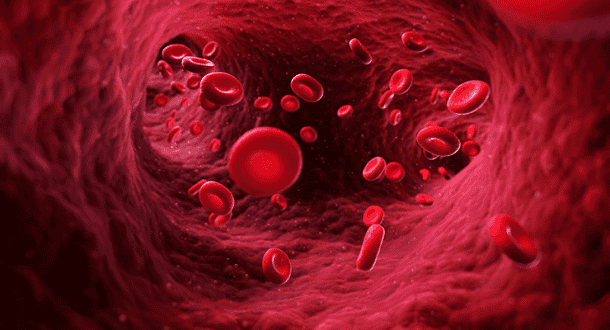Around the globe, hundreds of people die in accidents just because of the shortage of blood supply. Even if blood is available, finding matching blood type in the required amounts is not always possible. Researchers have been trying to discover methods for creating blood artificially. They have been successful in doing so, but the methods were capable of only producing blood in small amounts. Scientists at the University of Bristol partnered with NHS Blood and Transplant and discovered a way of generating a sustainable supply of red blood cells for mass production of artificial blood.
Another older method to produce red blood cells uses stem cells from adult peripheral blood, umbilical cord blood, and pluripotent. While all of these could produce blood cells but the capacity was very limited. Stem cells obtained from these sources produce no more than 50,000 red blood cells before they die while just a bag of blood contains over 1 trillion RBCs. Scientists have now been able to immortalize a line of cells called BEL-A (Bristol Erythroid Line Adult), which are capable of producing a sustainable red blood cell supply.

The BEL-A line of cells is immortalized at the premature stage and then divided to continuously generate red blood cells that continue into other lines of cells. The technique is not only useful for producing blood, but researchers consider BEL-A is a research tool that has the ability to produce many other therapeutic products.
The study was published in the journal Nature Communications where the researchers say:
“Cultured red blood cells provide such an alternative and have potential advantages over donor blood, such as a reduced risk of infectious disease transmission, and as the cells are all nascent, the volume and number of transfusions administered to patients requiring regular transfusions (sickle cell disease, thalassaemia myelodysplasia, certain cancers) could be reduced, ameliorating the consequences of organ damage from iron overload.”
Before the method becomes a certified for blood production, it needs to pass clinical trials. The technique is also expensive, and even if it passes the clinical trials, it will be a long time before it becomes a commercially viable method of mass producing blood with reduced manufacturing costs.
Blood is not the hardest thing to obtain for people with the common blood types but for patients with the rare blood types like O Rh positive and B Rh positive, it is an absolute catastrophe. If the method becomes commercially successful, it will be saving millions of lives all across the globe by ensuring sufficient blood supply in hospitals.


